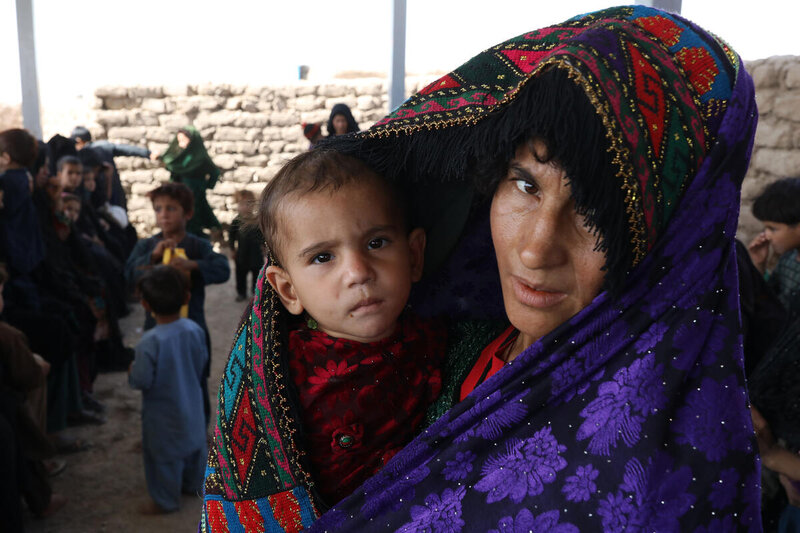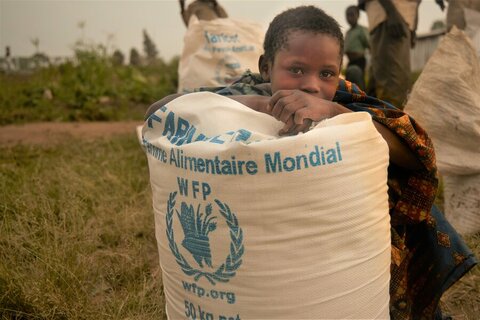War in Ukraine: WFP renews call to open Black Sea ports amid fears for global hunger

The World Food Programme (WFP) has urged for a “political solution” as the closure of Ukrainian ports in the Black Sea continues to threaten food supplies – and millions of lives – around the world.
Without it, the threat to global food security posed by the ongoing war will result in “famine, [the] destabilization of nations as well as mass migration by necessity”, WFP’s Executive Director, David Beasley said.
‘Failure to open Black Sea ports is a declaration of war on global food insecurity’
In a debate at the United Nations Security Council on 19 May, he urged world leaders to take immediate action to help the 276 million people around the world who face starvation.
“Truly, failure to open those ports in Odesa region will be a declaration of war on global food security,” said Beasley. “And it will result in famine and destabilization and mass migration around the world.”

“When a mother has to choose between freezing her child to death or starving her child to death, something's wrong. Especially when there's so much wealth on the planet today — over $430 trillion worth.”
In impassioned pleas to the specially convened ‘call to action’ group on 18 May, attended by US Secretary of State Antony Blinken and the UN Secretary-General António Guterres, Beasley added: “The silos are full. Why are the silos full? Because the ports are not operating … it is absolutely essential that we allow these ports to open because this is not just about Ukraine, this is about the poorest of the poor around the world who are on the brink of starvation as we speak.”
The number of people that WFP supports that is expected to rise by 20 million this year because of increases in fuel and transportation costs – since the start of the war, WFP’s operational bills have risen by US$70 million a month, resulting in cuts in critical nutrition.

“In the past month in Yemen we have had to reduce rations to 8 million individuals who are already in IPC 3 and 4,” Beasley said at the Security Council – ‘crisis’ and ‘emergency’ respectively on the global standard for food insecurity (the Integrated Food Phase Classification).
“In many countries we are forced to make the heart-breaking decision to take food from hungry children to give it to starving children.”
Beasley called for “substantial new humanitarian funding to deal with the skyrocketing levels of need we are now seeing. And this includes contributions from high-net-worth individuals and corporations, many of whom have profited from the pandemic.”
There are currently 811 million chronically hungry people in the world. A record high of 276 million are on the brink of starvation – up from 135 million people before pre-COVID19 and 80 million in 2017.
“Of these, nearly 49 million people in 43 countries are right on the edge of famine,” said Beasley.
Without urgent action, not least the opening of Black Sea ports, more and more people will slip into hunger and the ripple effects of the war will be felt by the world’s poorest families in Africa, the Middle East and beyond.

He went on to warn that countries should “avoid protectionism and keep trade flowing across borders.”
“We truly are in an unprecedented crisis,” he said. “Food pricing is our number one problem right now [creating a] perfect storm for 2022. But by 2023 it very well will be a food availability problem. When a country like Ukraine that grows enough food for 400 million people is out of the market, it creates market volatility, which we are now seeing.”
Before the war started, WFP predicted 2022 would be a year of ‘unprecedented hunger’ with the devastating intersection of conflict and climate change, COVID-19 and rising costs, dealing impossible blows to economies already on their knees.
Interview: Saying no to hunger as a weapon of war

In Ukraine, it is critical that “farms get back in operation, that the trucks and the trains and the ships move again”, said Beasley, calling on world leaders to take immediate action to save lives: “It's time that we do every possible thing that we can to bring the markets to stability because things will get worse.“ He added: “But I do have hope.
“We averted famine. We averted destabilization over the past many years because many of you in this room stepped up and we delivered. And we can do that again.
“It’s a very, very fragile time on planet earth. The world is on fire. We have solutions. We need to act, and we need to act now.”
